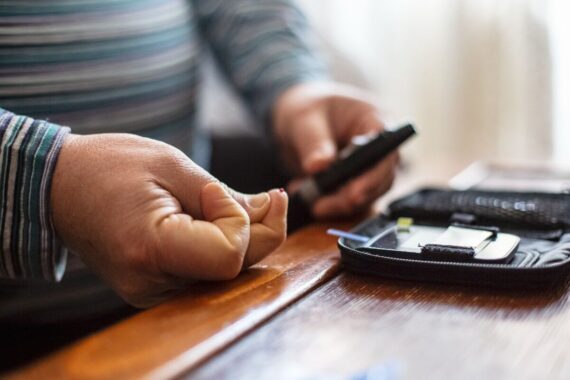Thousands of patients at risk of wrong blood glucose results after testing error

Thousands of patients will need to have blood glucose tests redone after an NHS trust identified problems with a machine used to analyse samples.
Bedfordshire NHS Trust said there had been ‘intermittent issues’ with the HbA1c blood test analysing machines in their Luton and Dunstable University Hospital laboratory.
As many as 11,000 people could be impacted by the issue which may have led to some patients having higher readings and even being misdiagnosed with diabetes.
The trust said it had worked with the hospital and GPs to identify patients who may have received incorrect results between April and July.
It appears that only tests during certain days in this period were affected and patients across Bedfordshire and Hertfordshire should wait to be contacted.
Patient Danielle Downs, 44, told the BBC she had a test result which showed significantly raised blood glucose levels.
She was so stressed by the finding she paid hundreds for private checks which turned out to be normal.
Although her case was from February, the trust said it was confident that the time frames they had identified for possible testing errors was correct.
They said the concerns about inaccurate tests were first brought to their attention on 15 July.
In a statement on their website they said: ‘We sincerely apologise for any emotional distress and inconvenience that has been caused by this issue. We are undertaking a detailed review to find out what went wrong and identify any learning.
‘As a precautionary measure we are no longer analysing these results at our Luton lab.’
The hospital will be calling affected patients ‘over the coming weeks’ to ask them to reattend for another test.
‘We are asking residents to please avoid calling the hospital or your GP to ask whether you need to be re-tested because we need to focus our effort on arranging the retests with those patients who need them,’ it added.
Visit Pulse Reference for details on 140 symptoms, including easily searchable symptoms and categories, offering you a free platform to check symptoms and receive potential diagnoses during consultations.









